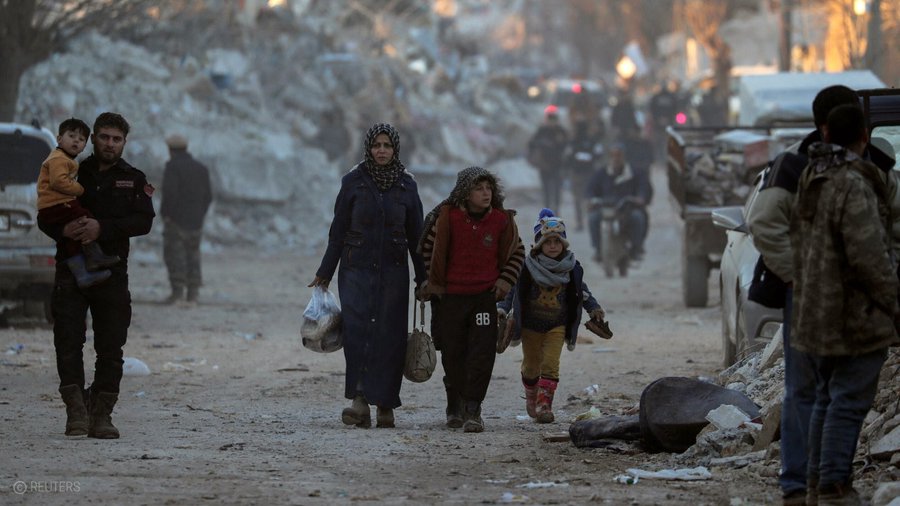WPHF is channeling rapid and flexible financing to local civil society organizations in Syria working at the forefront of the humanitarian response to the February 2023 earthquake — ensuring the protection of women and girls, advancing their socio-economic recovery, and promoting their participation and leadership in crisis and humanitarian contexts.
SYRIA CALL FOR PROPOSALS - ROUND 1: OPEN SYRIA-Türkiye FUNDING APPEALOur Work
In Syria, WPHF is partnering with women-led and women’s rights organizations mobilizing to enhance the leadership of women and girls, particularly those forcibly displaced and at higher risk of vulnerability, in humanitarian planning and response processes in the wake of the February 2023 earthquake.
WPHF is also supporting local women’s groups to enhance the safety, security and mental health of women and girls affected by the effects of the earthquake.
Background
On 6 February 2023, a major earthquake of magnitude 7.8 – the region’s strongest in nearly a century – struck southeastern Türkiye and northern and middle parts of Syria, leaving both areas on the brink of a humanitarian crisis. The initial earthquake was followed by another one of magnitude 7.5 several hours later, with at least 1,206 aftershocks recorded across the region. According to estimates by the United Nations Office for the Coordination of Humanitarian Affairs (OCHA), physical damages caused by both earthquakes In Syria are estimated at US$5.1 billion.
Prior to the earthquake, more than 15 million people were estimated to need humanitarian assistance across the country. Over 11 years of crisis, economic devastation, multiple droughts, the COVID-19 pandemic and a Cholera outbreak have left Syria with not only the largest number of internally displaced people in the world – 6.8 million – but also an estimated 15.3 million in need of humanitarian assistance. The earthquake has further amplified the challenges of an already weak and fragile health system, damaging hospitals and other health facilities across the country and forcing them to reduce their functionality or suspend their operations.
In this challenging scenario, maintaining access to lifesaving sexual and reproductive health (SRH) assistance, integrated SRH-GBV services, and other essential health services remains a critical response priority. The compounding deep-rooted and multidimensional crisis and earthquake aftermath are having a disproportionate impact on the most vulnerable, particularly women and girls. Insecurity and economic hardship have become major drivers of need, exacerbating protection and GBV concerns, especially among groups at increased risk due to their age, gender, health, or social status. Female-headed households, older people, and people with disabilities continue to be disproportionately affected by the compounding drivers of the crisis in Syria.
Given these combined effects and their disproportionate impact on women’s safety, access to services and economic activity, it is critical that local women’s rights organizations are supported and take part in decision-making related to humanitarian action and crisis management to ensure gender-inclusive, sustainable responses to the current needs.
Our Vision
In Syria, WPHF aims to ensure the financing and coordination of local civil society organizations working to support women and girls as key actors in humanitarian planning and response, ensuring their knowledge, perspectives and needs contribute to sustainable peace across the country.
